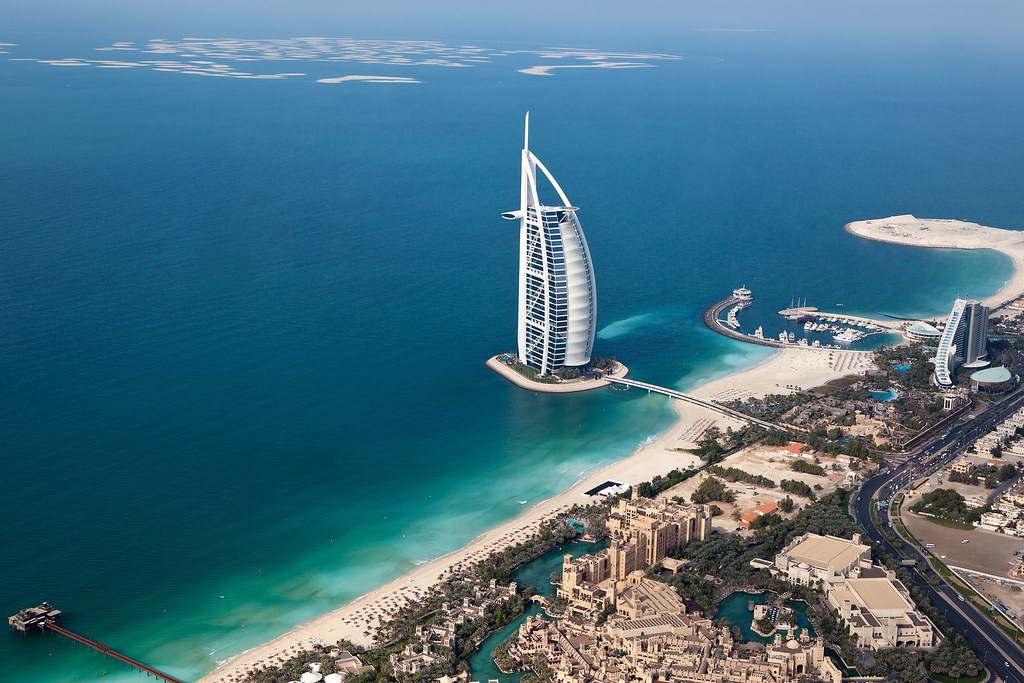The Impact of Dubai's Cultural Diversity on Franchise Businesses

Introduction: Understanding Dubai's Cultural Diversity and Its Significance
Dubai, a vibrant city in the United Arab Emirates, is known for its rich cultural diversity. Its dynamic blend of cultures, religions, and traditions results from a thriving expatriate population and cosmopolitan lifestyle. The Dubai cultural diversity impact on various sectors of business cannot be underestimated, particularly for franchise businesses.
Operating in such a culturally diverse environment offers both challenges and opportunities for franchise businesses. Understanding and respecting this diversity is not just about promoting a multicultural ethos; it's a business necessity. For franchise businesses, it equates to more expansive and varying consumer markets, necessitating a flexible and sensitive approach to business operations.
Recognizing and valuing the influence of cultural diversity helps businesses in Dubai to foster stronger relationships with customers, adapt to local market conditions, and ultimately succeed in their respective domains. Indeed, the cultural mosaic of Dubai adds a unique flavour to franchise operations, shaping their marketing strategies, product offerings, and customer relations.
Cultural Mosaic: Exploring the Diversity of Dubai's Population
Dubai's population is a perfect demonstration of a cultural mosaic. With more than 200 nationalities calling it home, the city thrives on cultural diversity. The cultural and ethnic composition plays a significant role in determining business strategies, particularly for franchises keen on capitalizing on this diverse consumer base.
A wide array of nationalities means a broad range of tastes, preferences, and buying habits. For franchise businesses, understanding these dynamics is crucial for successful market penetration. From the food and beverage sector to retail and services, this cultural mix necessitates an in-depth understanding of the demographic makeup and the varying consumer behaviours it inspires.
A population enriched by people from all corners of the globe has shaped Dubai into a cultural hub, affecting all facets of life, including business operations. As such, franchise businesses need to appreciate this diversity, recognizing its impact on market trends and adjusting their strategies accordingly. This approach is pivotal in their quest to maximize their market reach and foster a loyal customer base.
Cultural Influences on Consumer Behaviour in Dubai
Delving deeper into the realm of consumer behaviour, it's evident that the cultural diversity of Dubai heavily impacts purchasing decisions and patterns. This impact goes beyond language and dress codes; it includes values, customs, and consumption habits that differ vastly across cultural lines. Such cultural nuances significantly affect franchise businesses in Dubai and their strategic planning.
To illustrate, consider the food sector. Dietary restrictions based on cultural or religious beliefs, such as halal requirements for Muslims, directly impact the offerings of food franchises. Similarly, preferences for specific cuisine types, influenced by cultural backgrounds, play a pivotal role in determining the success of food franchises. Therefore, understanding cultural influences on consumer behaviour is instrumental in tailoring product and service offerings.
Moreover, these cultural influences extend to other business aspects such as operating hours, promotional offers, and marketing campaigns. For instance, understanding the significance of the Ramadan period for Muslims would require franchises to adjust their business hours and launch special offers or products. Hence, this cultural awareness provides franchises with a unique opportunity to connect with customers on a deeper level, building brand loyalty.
Adapting to Cultural Preferences: Customizing Franchise Offerings
As franchise businesses continue to thrive in Dubai, there's a growing recognition that a 'one size fits all' approach doesn't work in such a culturally diverse environment. The necessity of customizing franchise offerings to cater to local cultural preferences is becoming increasingly apparent.
For instance, global fast-food chains, when expanding to Dubai, often modify their menus to respect local dietary norms and preferences. They introduce items that resonate with the local taste, such as incorporating Arabic flavours or offering halal-certified foods. This cultural adaptation in product offerings not only abides by cultural norms but also caters to local taste buds, thereby securing a place in the competitive market.
Similarly, retail franchises may adjust their product lines to reflect local fashion trends, which are influenced by both cultural and religious factors. Adapting product offerings to fit the local culture can result in a more favourable reception from consumers. Hence, it is vital for franchises to strike a balance between maintaining their brand identity and making necessary adaptations to cater to local cultural preferences.
Moreover, service-based franchises also need to consider cultural preferences. Whether it's beauty services offering treatments popular in certain cultures or fitness franchises providing gender-segregated facilities respecting local norms, adaptation to cultural preferences can significantly enhance customer satisfaction and loyalty.
Multilingual Marketing and Communication Strategies for Franchises
As part of adapting to the cultural diversity of Dubai, franchises must adopt multilingual marketing and communication strategies. Given the multicultural demographic, franchises often need to convey their brand message across languages. English and Arabic are the most commonly spoken languages, but there's also a significant population speaking languages such as Hindi, Urdu, Filipino, and Russian.
Hence, franchises may need to produce marketing materials and advertisements in multiple languages to effectively reach a broader audience. It's not only about literal translation but also about capturing the cultural nuances and emotional appeal of the original message. For this, businesses may need to collaborate with native language experts or specialized marketing agencies.
Besides marketing, customer service communication should also cater to the multilingual audience. It's about respecting the customers' language preferences, making them feel valued, and building stronger relationships. Having staff who can communicate in various languages or providing multilingual support through digital platforms can significantly enhance the customer experience.
Cultural Sensitivity and Respect: Building Relationships with Diverse Audiences
A crucial aspect of navigating Dubai's cultural diversity is fostering a sense of cultural sensitivity and respect. For franchise businesses, this goes beyond the realm of customer interactions and seeps into their overall business philosophy.
Cultural sensitivity implies understanding, acknowledging, and respecting cultural differences. It means that franchise businesses should not merely tolerate differences but embrace them as a valuable resource. This respect should be apparent in all aspects of the business, from product offerings and marketing strategies to employee relations.
One way franchises can demonstrate this is by celebrating various cultural festivities and events. Organizing special sales during Diwali, offering Iftar meals during Ramadan, or celebrating international events like Christmas, can show respect for different cultures and foster a sense of inclusion among customers.
Similarly, businesses should ensure their marketing materials and campaigns are culturally sensitive. They should avoid stereotypes and ensure their content is respectful and inclusive. Mistakes in this area can lead to backlash and harm the business's reputation.
Embracing Diversity in Staffing: Hiring and Training Practices for Franchise Businesses
Embracing cultural diversity should also reflect in a franchise's staffing strategy. Hiring a diverse workforce can bring in different perspectives, enhance creativity, and lead to better decision-making. It can also help businesses better understand and cater to their diverse customer base.
Franchises in Dubai should, therefore, aim to build a multicultural team. This would involve attracting talent from various backgrounds, providing equal opportunities, and fostering a work environment where everyone feels valued and respected.
Training also plays a crucial role here. Employees should be trained to respect cultural differences and be aware of cultural nuances that may affect their interactions with customers. This cultural competence can help build stronger relationships with customers, enhance customer satisfaction, and ultimately, drive business success.
Festivals and Celebrations: Leveraging Cultural Events for Franchise Promotion
Given the cultural diversity in Dubai, the city is home to a myriad of festivals and celebrations throughout the year. For franchises, these cultural events can be an excellent opportunity for promotion and building stronger ties with the community.
Depending on their industry and target audience, franchises can offer special promotions, launch limited-time products, or host events aligned with these celebrations. Such initiatives can attract customers, increase sales, and also showcase the franchise's respect for the local culture.
For instance, franchises can offer special deals during Ramadan, launch collections inspired by the Dubai Shopping Festival, or celebrate National Day with unique offers. These strategies can not only drive business growth but also enhance the franchise's reputation as a culturally sensitive and inclusive brand.
Navigating Religious and Dietary Considerations in Franchise Operations
Religion plays a significant role in the lives of people in Dubai, with Islam being the most practiced. Consequently, religious and dietary considerations are an integral part of business operations, particularly for franchises in the food and beverage sector.
These businesses must ensure their offerings comply with halal standards. This involves not only the ingredients used but also the preparation and handling process. Ensuring halal compliance can be a decisive factor in gaining the trust of Muslim consumers.
Moreover, franchises should also be aware of the religious practices and schedules. For instance, adjusting business hours during Ramadan or respecting prayer times can resonate with the local consumer base.
However, it's not just about catering to the Muslim population. Given the multicultural demographic, franchises should also consider the dietary preferences and restrictions of other religious or cultural groups. This could involve offering vegetarian options for Hindus, kosher products for Jewish consumers, or allergen-free options for health-conscious consumers.
Conclusion
Navigating the rich cultural diversity of Dubai is a complex yet rewarding journey for franchise businesses. Embracing this diversity can lead to a deeper understanding of the market, foster stronger relationships with customers, and ultimately drive business success. The key lies in respecting cultural differences, adapting to local preferences, and leveraging the opportunities this diversity presents. As Dubai continues to thrive as a global city, franchises that can effectively harness this cultural diversity are well-positioned to grow and flourish.

Post a comment